|
OK...Hi! Boy, have I been busy lately! I had all these great ideas for articles to post here but I just haven't had time for any of them. Going through my list of potential articles, though, I see I had an idea for a series of articles on netlabels. Well, that seems fairly straight-forward and not too involved, so...off we go!
Netlabels. What are they? Let's turn to the ultimate source of all reliable knowledge, Wikipedia, for our answer: "A netlabel (also online label, web label, digi label, MP3 label or download label) is a record label that distributes its music through digital audio formats (such as MP3, Ogg Vorbis, FLAC, or WAV) over the Internet. While similar to traditional record labels in many respects, netlabels typically emphasize free distribution online, often under licenses that encourage works to be shared (e.g., Creative Commons licenses), and artists often retain copyright. Netlabels may have a considerably lower staff count than traditional record labels, in some instances being only a single individual in control of his/her music, maintaining sole ownership. Physical LPs, for example, are rarely produced by a netlabel, relying entirely on digital distribution and means of the Internet to provide the product. Having no physical product makes the running costs of a netlabel considerably less than a traditional record label and some netlabels have abandoned any financial model altogether and instead, running the netlabel as a hobby. Some employ guerrilla marketing to promote their work." The Wikipedia article goes on to describe some of the history of netlabels with an emphasis on the demoscene, trackers, MODS, 8-bit and videogame music. While this certainly is an important part of the early history of netlabels, I feel there is a more significant connection historically to earlier forms of DIY music production and distribution, namely the Cassette Culture of the 70s, 80s, and 90s. Are netlabels a continuation of Cassette Culture or are they a different animal altogether? I lean toward thinking they are more similar to the cassette labels of the 80s and 90s than they are different, but I'm going to leave that question open and, hopefully, we'll see some interesting commentary/discussion here at Electronic Cottage! In the meantime, I'm going to start posting some basic information on netlabels that I've been involved with or have come across in my activities as an experimental music artist. Here's the first one - suRRism-Phonoethics:
From their bio at Free Music Archive - "Surrism-Phonoethics is an Offenbach, Germany based (currently) non-profit netlabel founded & run by Jaan Patterson, specializing in Experimental music. Some of their releases could be classified as Electronic art music/Electronic music, industrial or experimental music with sub-genres like Electro-Acoustic, Improvisation & Cut-Up. Their official launch occurred in 2008, with a release for Undress Béton ‘Tarentaliogy Defloration’.
All their releases are free for download under Creative Commons or Copyleft licenses.
suRRism was initiated by Jaan Patterson & Aufait, formalized after publication of their suRRism Manifesto to the Internet Archive as lettrrism_0000 in November 2007. The release labeled as ‘sPE_0001’ ‘Caged?’ in February 2010 by Igor Jovanovic (Lezet) consists of 10 Prepared Piano pieces, was the first Artist, besides the founders who released to their catalogue of suRRism-Phonoethics."
Right, so suRRism-Phonoethics was, indeed, founded by the German artist/musician Jaan Patterson, whom I've known for a decade or more. Jaan was extremely active in the netlabel/experimental digital music scene for a long time and, in addition to running suRRism-Phonoethics, also co-ran (with UK-based Anthony Donovan) the great Classwar Karaoke series of internet releases. I haven't heard from Jaan in awhile and I'm not sure what he's up to these days. I don't even know if suRRism-Phonoethics is currently active, but their many fabulous releases are still available at suRRism-Phonoethics label at Free Music Archive and at the suRRism-Phonoethics Bandcamp site and well worth checking out!
- W.A.Davison
Recordism
26 Comments
Neal D Retke
6/9/2018 15:24:56
What a great idea for a series of reviews, and an excellent choice to start things off ~ I really, really miss Jaan & the label, but it's left such a rich legacy in tandem with Classwar Karaoke ~ Huge impact on me, very happy memory - Thanks for posting ~ !
Reply
6/9/2018 19:43:22
Thanks, Neal! panpanpanaviandistresscall is on my list of labels to feature here as well.
Reply
6/10/2018 07:59:49
Many thanks for this introduction. Badly needed - not that I don't understand how netlabels work - but this world definitely needs a introduction of the interesting/challenging participants. suRRism-Phonoethics offers tight, intense, daring sounds and sights, really worth to get into and look for material worth to download!
Reply
6/10/2018 12:28:45
Thanks for your thoughts on the matter LL! This is just the kind of commentary I was hoping for!
Reply
6/10/2018 13:23:44
Hi!
Rafael González
6/10/2018 18:00:19
A great netlabel, a great article!
Reply
Frank
6/11/2018 22:55:48
Nice introduction to netlabels! Looking forward to the others that you will present, Mr.Davison!
Reply
6/12/2018 01:09:59
Further response to LL's comments:
Reply
6/12/2018 01:46:09
Evolution and entropy are forces that human beings are constantly battling it seems. Methinks saying that "Netlabels are a continuation of cassette culture" is akin to saying "Email is a continuation of the postal service." There is some metaphor there for people to think about and discuss, but the reality is quite different.
Reply
6/12/2018 14:17:48
.. another thing I basically mean:"I enjoy playing 78 RPM shellac records from the very early 20th Century on a Victrola."
Reply
Hal
6/12/2018 03:40:42
Electronic Cottage is constructed from templates. Content is the most important thing. Netlabels should be judged/enjoyed on a case by case basis. The Good Old Cassette Days are gone. They are not coming back. We can wish that things would be the same as they used to be when we were young, but they are not. My Dad, for example, wishes that things were the way that they were when he graduated from high school in 1956. I will say it again: Let's try our best to resist the temptation to turn EC into a retirement home for Old Home Tapers who sit around in their rocking chairs talking about how great things were back in the day and how these young whippersnappers don't know what the hell they are doing, and don't have any guts or soul or cred. Netlabels are as good or bad or valid as any cassette label ever was. There were some shitty cassette labels back in the Good Old Bad Old Days, just like there are shitty netlabels now. So, let's all take our daily prescriptions, watch what you eat and drink, take your blood pressure readings like you should, and try our best to figure out how to drag our saggy worn-out asses into the 21st Century. Like anything, a netlabel is what you make it. I put as much love and thought and time and care into my download albums as I do or did with cassettes, CDRs, and zines. It's one thing to say that we prefer to enjoy hard/physical media, and another to make radio programs and podcasts and websites in which we report on all of that great hard/physical media. Hard media is a habit. Habits are easy and they are hard to break: I know. I recently bought some very nice (but small) speakers for my computer so that I can get more enjoyment out of streaming audio. It's my personal plan (as editor of EC) to spend more and more time listening to online music. There are joys to both physical and online music. It's really all about fun, is the way that I look at it.
Reply
6/12/2018 06:25:12
Hi......to everybody who replied one or the other way to my comments.
Reply
Chris Phinney
6/12/2018 09:20:03
Some net labels I have been involved in I thought good, some bad, but as Hal stated there were some really bad cassette labels as well. Nice article W.A. & good to read all the comments.
Reply
6/12/2018 11:07:45
Thank you for featuring suRRism-Phonoethics. So much great material published by this imprint.
Reply
Hal McGee
6/12/2018 11:30:26
I think that perhaps one of the biggest shortcomings of netlabels (and online music in general) is excess. I myself have fallen prey to this with some of my past online compilation projects. Because it is physically / logistically and financially-easier to produce an online album there is a tendency to go overboard and offer too much stuff. A lot of people feel overwhelmed when they are faced with too much stuff. One of the most common complaints I get from people regarding my Bandcamp sites is "Hal, you have so much stuff that I don't know where to start!" And unfortunately a lot of those people end up not checking out any of it. When faced with big compilation projects, such as Radio Nautilus - https://www.electroniccottage.org/w-a-davison/radio-nautilus-compilation - which consists of 119 tracks! ... I don't even try to listen except to tracks by people I know. Who can find the time to listen to all of that stuff?! I can't! I can barely find time to listen to even half of the material that is posted and talked about here at EC! So, my questions are: should we post all 300 albums that we have released over the years JUST BECAUSE WE CAN? And should we produce compilations that very few people, including the contributors, could possibly listen to in its entirety? What is the point of that? Sometimes offering too much has an undesirable effect: it turns people off!
Reply
6/12/2018 12:34:09
You would not believe how much I agree with this!!!
Reply
Hal McGee
6/12/2018 13:15:17
You are right. Each person must make choices. None of us can listen to all of the music, noise, and audio art that is available. I have more than 2000 cassettes at home. Have I listened to all of them? To be honest, no I have not. Add to this all of the music that is available online! So we must make choices of what we listen to. Or listen to none at all. PERHAPS all of us at EC could focus our listening on music created by other EC community members. That is one way that we can choose. In other words, we can choose what we listen to based on a sense of community, of fellowship.
Swami L.
6/12/2018 13:20:35
For what it's worth, here's another gnash for everyone to chew on from your Taped Rugs representative... In the case of Hal's massive catalog, and my own too -- most of these albums were produced long before they were made available on the internet. The older recordings were available in physical forms, but not always easy to obtain. Since they have been made available on the internet, new listeners have heard them, and old listeners who may have wanted to hear the original works but, for whatever reason, never got the chance, now can hear them. I don't see anything wrong with this. 6/12/2018 16:29:58
Another interesting quality about many of these musics is that, I have been thinking-- they were recorded in solitude. One, or perhaps several, artists got together and jammed-- or layered jams-- with no one else listening-- perhaps the house cat only, or girlfriend, etc.. It gives them a special sense of freedom. I believe it also makes a lot of this music hard to categorize.
Reply
Chris Phinney
6/12/2018 19:35:44
In regards to net labels one I do like & once I redo studio is Tristan Koreya who runs:
Reply
Hal McGee
6/13/2018 09:44:00
Yeah, there's some tasty stuff at Nostalgie De La Boue!
Reply
Juan Angel Italiano
6/12/2018 19:51:45
Good approach to the stamp suRRism-Phonoethics. An excellent job of spreading Jaan.
Reply
Hal McGee
6/13/2018 10:09:15
What I am looking for in a Netlabel experience are the same things that I am looking for in any art-musical experience: Community, Contact, Compilations and Collaborations. In other words, interactions between people engaged in art-making activities. There is already enough music and art in the world, one could say a bounteous surplus. Do I need to listen to more music, watch more videos, look at more visual art? What I really crave and the reason that I create art in the first place is to express myself and to share my experiences and existence through art and to connect with other people through that art and to experience their existence through their art too. For me it is not just about music, not just about art, because these things only hold the meanings that they do based on the people who make them. This is why I am striving at Electronic Cottage to create, first and foremost, a community based on and around people who make art. We don't need a lot of people at EC. Numbers are not important. Sharing thoughts, ideas, sounds and images are the things that are most important.
Reply
Neal D Retke
6/17/2018 07:53:29
I would just like to say that I am really enjoying the lively dialogue around this subject, it is very interesting to me. I think one of the biggest problems about net labels / streaming music sites is the lack of context. Since so many of them are visually defined by the templates provided by the website itself ( Thinking specifically of BANDCAMP & SOUNDCLOUD here, but it would certainly also apply to FMA & ARCHIVE as well ) there is a visual homogeny to the gateway & courtyard, so to speak, before you are introduced to whatever artistic elements exist in / on the releases therein. In addition, many of these websites include lots of diagnostic & analysis information - How many plays, where from, ect. It is my opinion that one of the main things this does is create pressure to increase views / exposure on that site, and the natural tendency there is to mimic or ape the visual aesthetic of successful releases. I've noticed over the years that there has been an increase of the " Overground " and " Underground " cultures approximating design elements of the other side, if you will - Creating a lot of visual confusion about what camp something is in. In one sense, I think that's great ( It's all fair game ) - In another, the content / sounds you are going to hear seem to have less & less of a relationship with the aesthetic of the release. If you combine that with the fact that there's an overwhelming amount of material on line, ( As many comments here mention ) it becomes a negatively chaotic experience. I think in part this is down to the fact that in past times, there was a much more mechanical process to finding these things - If you wanted to find underground culture, it involved a spiral of media ( very often finding a review oriented publication, and then physically acquiring the materials reviewed, either in a record store or by contacting the artists themselves, ect ) - Very often the ' side trip ' of this process ended up with some gems as well - it seems to me that the ' side trip ' of the internet / on - line environment leads to just more of the same - Whatever the gist of the site you are on.
Reply
Leave a Reply. |
W.A.DavisonW.A.Davison is a Canadian multi-disciplinary artist who has been producing various forms of experimental art and music for over 35 years. Archives
April 2020
|
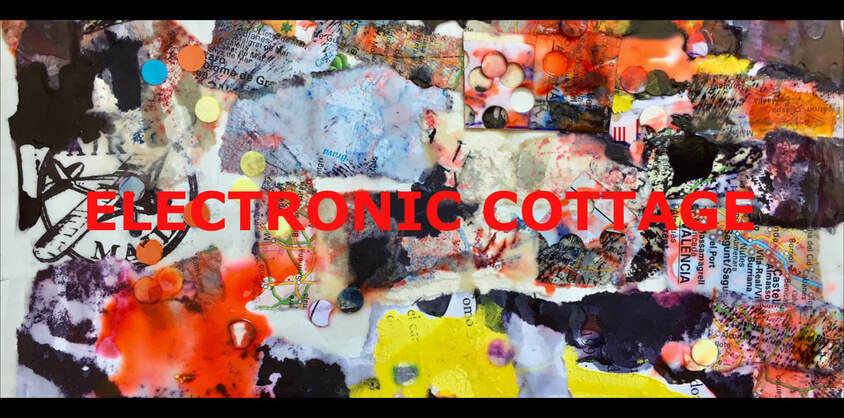
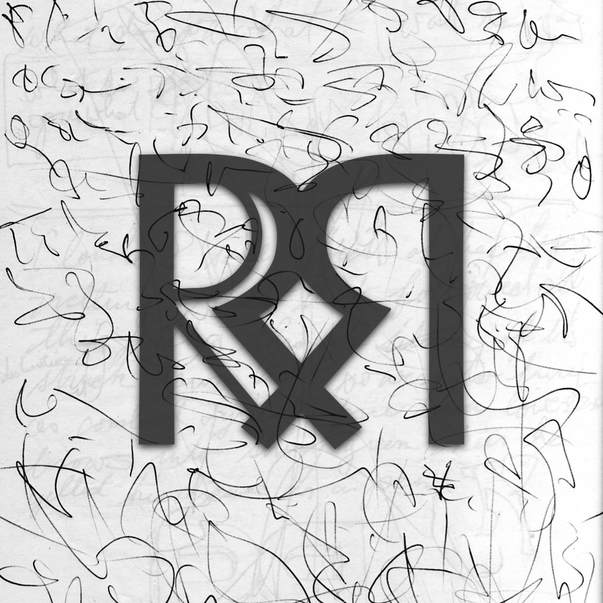
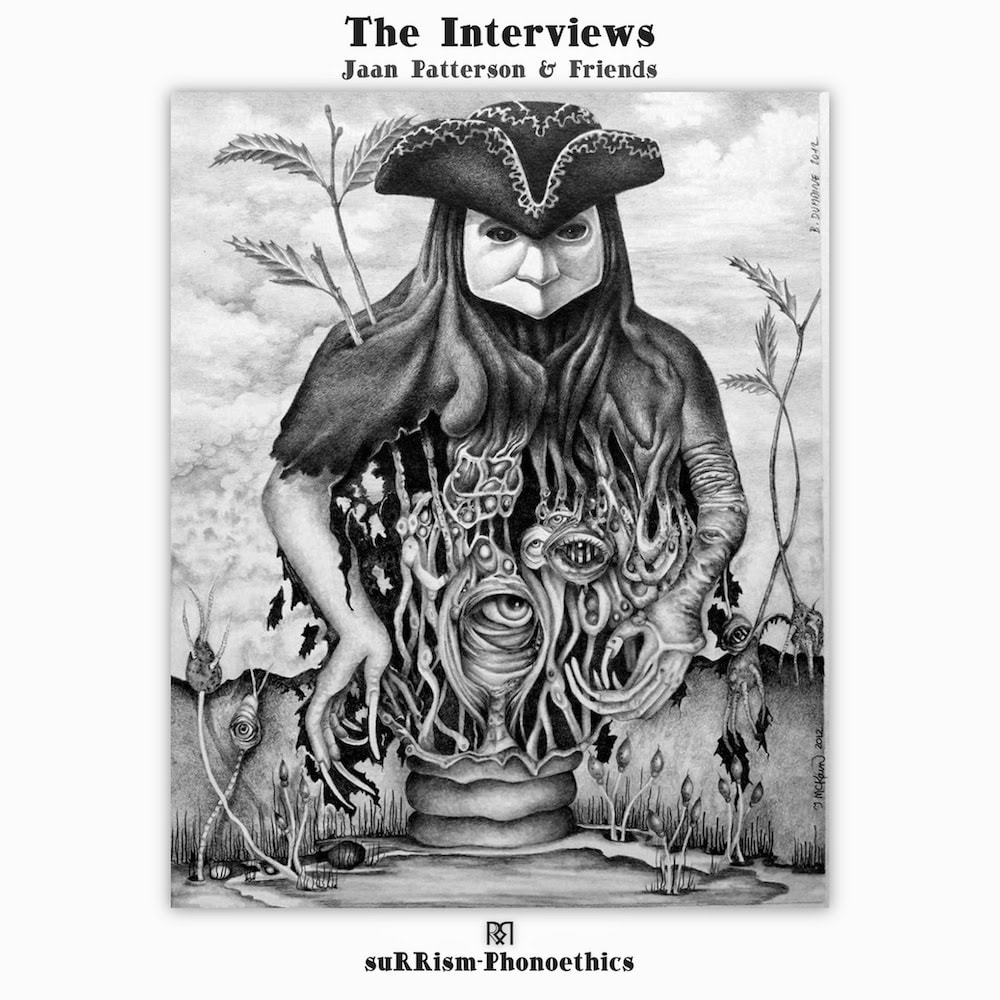
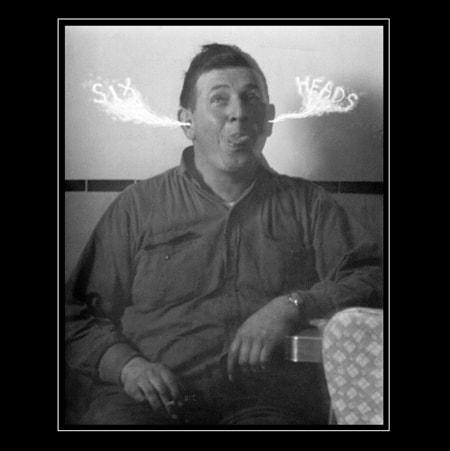
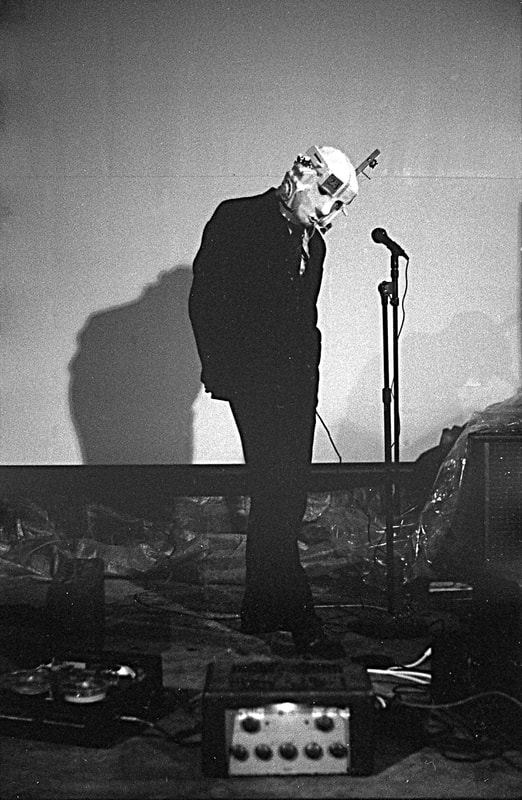
 RSS Feed
RSS Feed